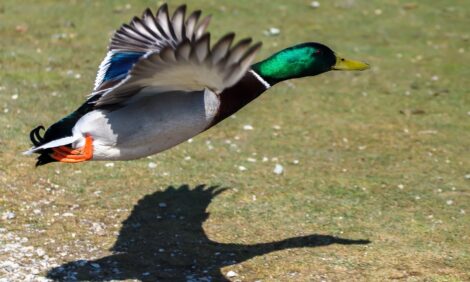



Effect of Different Dietary Levels of Rapeseed Meal on Growth Performance, Carcass Traits and Meat Quality in Turkeys
Feeding graded levels of rapeseed meal up to 18 per cent of the diet to growing turkeys did not impact final bodyweight but researchers based in Poland observed adverse effects on feed conversion and functional properties of the meat at higher levels of inclusion, as well as changes in meat fatty acid composition.In the introduction to their paper published recently in Poultry Science, Dariusz Mikulski of the University of Warmia and Mazury in Poland and co-authors there and at the Polish Academy of Sciences and the University of Manitoba explain that the objective of this study was to determine the effect of different dietary levels of low-glucosinolate rapeseed meal (RSM) on growth performance, blood thyroid hormone concentration, carcass traits and chemical composition, physicochemical properties and fatty acid profile of breast meat in growing turkeys.
The experiment lasted for 21 weeks. Large White BIG-6 turkeys were fed isoenergetic and isonitrogenous diets containing 0, 60, 120 and 180g per kg of RSM. Each experimental group was comprised of seven replicates per pen of 28 birds each.
There was no effect of graded levels of RSM on final bodyweight. An increase in the inclusion rate of RSM was followed by a linear increase in feed conversion ratio, which was significantly higher (P<0.05) in the group fed 180g per kg of RSM.
The blood levels of free triiodothyronine decreased significantly (P<0.05) regardless of the dietary level of RSM.
No significant changes in the carcass dressing percentage or the meat fat content were observed.
Significant differences were found in the fatty acid composition and physicochemical properties of breast meat. The concentrations of margaroleic acid and saturated fatty acids, including myristic and palmitic acid, in meat from male turkeys fed 120 and 180g per kg of RSM decreased linearly; whereas the levels of oleic acid and polyunsaturated fatty acids, including linoleic and linolenic acid (an n-3 fatty acid), increased linearly.
An increase in RSM content of the diets was accompanied by the unfavourable changes in selected functional properties of meat, including a significant increase in drip loss in groups fed 120g per kg of RSM (from 1.85 to 2.38 per cent) and 180g per kg of RSM (from 1.85 to 3.02 per cent) and a decrease in Warner-Bratzler shear force values in turkeys fed 180g/kg of RSM (from 19.1 to 15.8N).
The results suggest that the quality of turkey meat could be affected by impaired triiodothyronine secretion caused by dietary RSM.
Reference
Mikulski D., J. Jankowski, Z. Zdunczyk, J. Juskiewicz and B.A. Slominski. 2012. The effect of different dietary levels of rapeseed meal on growth performance, carcass traits, and meat quality in turkeys. Poultry Sci. 91(1): 215-223. doi: 10.3382/ps.2011-01587
Further Reading
| - | You can view the full report (fee payable) by clicking here. |
February 2012








